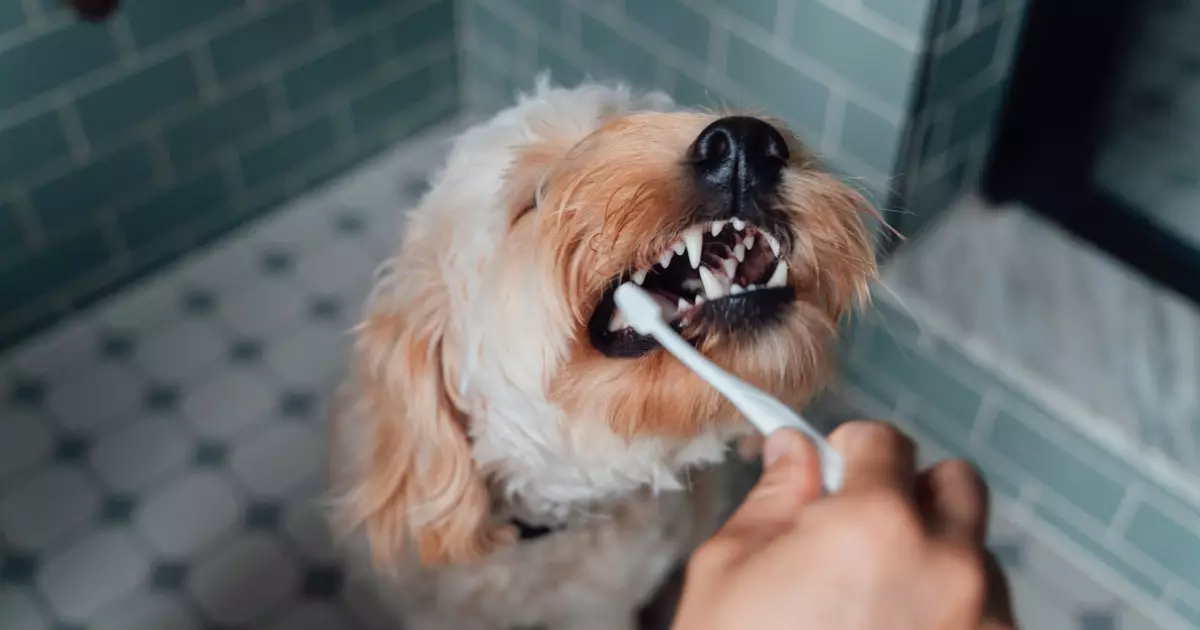Caring for your dog’s dental hygiene is a responsibility that many pet owners overlook, yet it plays a crucial role in the overall health of our canine companions. Alarmingly, studies reveal that approximately two-thirds of pet owners neglect their pets’ dental care as advised by veterinarians. This negligence presents a grim reality, as around 80% of dogs exhibit signs of oral disease by the time they reach the age of three.
This article aims to explore the significance of dental care for dogs, the implications of periodontal disease, and the necessary steps you can take to ensure your furry friend maintains a healthy mouth throughout their life.
Neglecting oral care in dogs can lead to severe consequences not just for their dental health, but for their overall well-being. The mouth serves as an entry point for bacteria, which can travel through the bloodstream and impact vital organs such as the heart, kidneys, and lungs. Initiating dental care as early as possible in your dog’s life is paramount. Pet owners should start educating themselves about dental hygiene for their dogs during their puppy’s formative weeks.
Veterinary check-ups should include evaluations of a puppy’s teeth to identify any potential issues early on, such as missing teeth or gum abnormalities. As dogs mature from puppies into adults, they will require routine assessments to monitor their dental health effectively. Regular visits to the veterinarian can help catch early signs of dental diseases before they escalate into more serious conditions.
Understanding Periodontal Disease
Periodontal disease is one of the most prevalent issues faced by dogs, often stemming from the build-up of plaque—a soft, sticky film of bacteria that forms on teeth. When plaque remains unaddressed, it can harden into tartar, complicating the dental landscape. Symptoms may often start with noticeable bad breath, a sign that should not be ignored. If you detect this issue, consulting your veterinarian for a thorough dental evaluation is critical.
The progression of periodontal disease can lead to painful conditions such as gingivitis, characterized by swollen, inflamed gums that easily bleed. Ignoring these symptoms can result in severe complications, including tooth loss and infections that affect surrounding tissues. The good news is that with dedicated dental care, most of these problems can be prevented altogether.
Regular dental examinations are a significant component of preventive care. These visits typically occur during annual check-ups involving both routine evaluations and professional cleanings. For smaller breeds, this may begin as early as the first year of life, while larger breeds might not require their first cleaning until they reach the age of two.
During these appointments, veterinarians perform pre-anesthetic exams to ensure your dog can safely undergo anesthesia if needed for a deeper cleaning. This comprehensive assessment may include blood tests, X-rays, and monitoring of vital signs to assess overall health. While the thought of anesthesia can be daunting, these precautionary measures ensure a reduced risk during the procedure.
The cleaning process itself encompasses scaling to remove tartar and polishing to provide a smooth surface on each tooth, making it more difficult for plaque to adhere again in the future. Such meticulous attention to your dog’s dental health not only prevents infections and other dental issues but can significantly enhance their quality of life.
Home Dental Care: A Vital Supplement
While regular veterinary visits are crucial for maintaining your dog’s oral health, daily at-home care is equally essential. Brushing your dog’s teeth can greatly reduce the risk of dental disease. Specially designed toothbrushes and toothpaste for dogs are widely available, making the process user-friendly.
In addition to brushing, consider incorporating dental chews and toys specially made to help clean teeth and promote gum health. These supplements can make dental care an engaging part of your dog’s daily routine and help to reinforce their dental hygiene between professional vet visits.
Investing time and effort into your dog’s dental health can extend their life by up to five years, radically improving their quality of life in the process. It’s never too late to start prioritizing dental care. Communicate with your veterinarian to tailor a dental care plan that fits your pet’s needs, ultimately ensuring that your dog remains healthy and happy throughout their life.
Understanding the critical role dental care plays in your pet’s health allows you to take proactive steps toward preventing serious health issues. By combining professional care with diligent at-home practices, you can significantly enhance your dog’s longevity and vitality. Don’t wait until problems arise; start caring for your dog’s teeth today!

